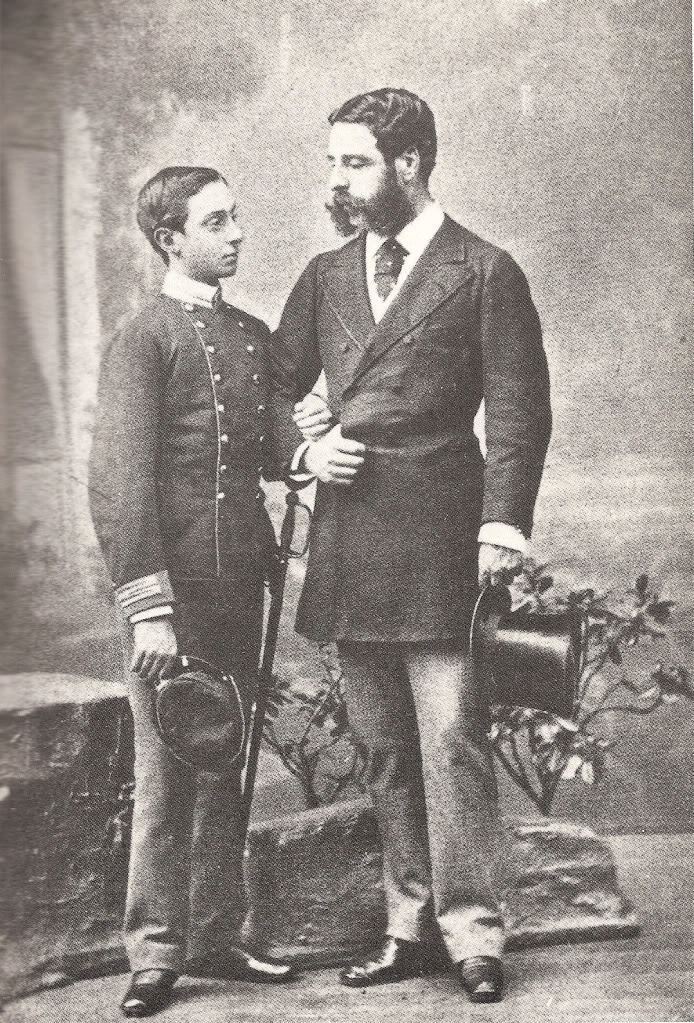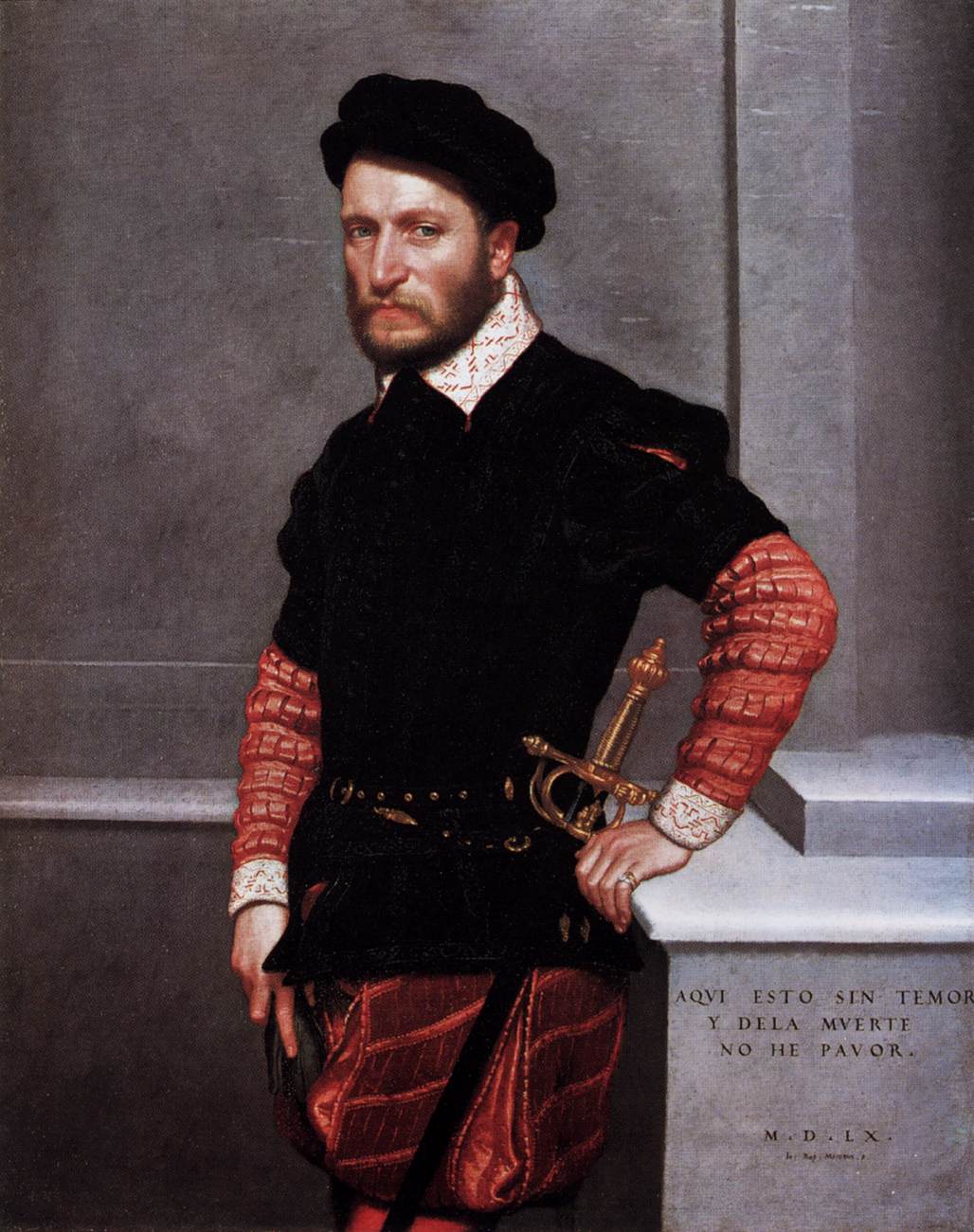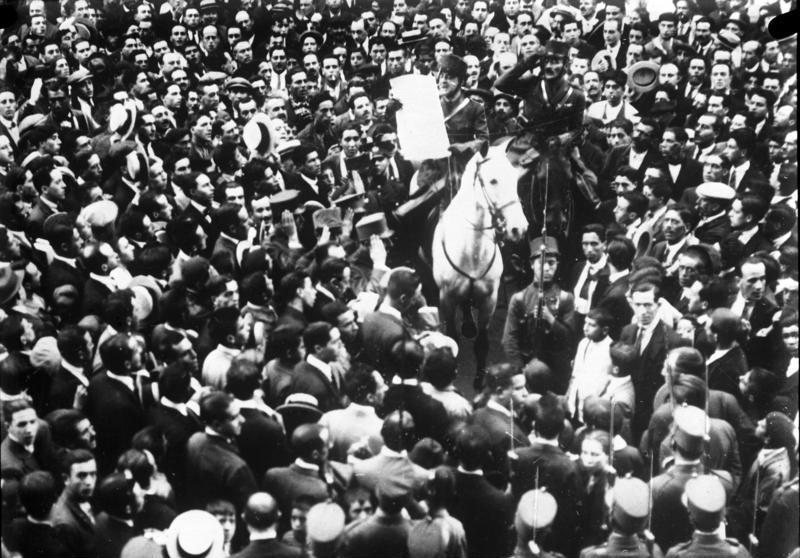|
Marquess Of Estella
Marquess of Estella ( es, Marqués de Estella) is a hereditary title of Spanish nobility, accompanied by the dignity of Grandee. It was created on 25 May 1877 by King Alfonso XII in favor of Fernando Primo de Rivera Fernando Primo de Rivera y Sobremonte, 1st Marquess of Estella (24 July 1831 – 23 May 1921) was a Spanish politician and soldier. Fernando Primo de Rivera was the son of Antonio Hermenegildo Primo de Rivera y Sobremonte and his wife Ana Ma ..., a prominent military officer and politician. List of Holders * Fernando Primo de Rivera y Sobremonte, 1st Marquess of Estella (1831-1921) * Miguel Primo de Rivera y Orbaneja, 2nd Marquess of Estella (1870-1930) * José Antonio Primo de Rivera y Sáenz de Heredia, 3rd Marquess of Estella (1903-1936) * Miguel Primo de Rivera y Sáenz de Heredia, 4th Marquess of Estella (1904-1964) * Miguel Primo de Rivera y Urquijo, 5th Marquess of Estella (1934-2018) * Fernando Primo de Rivera y Oriol, 6th Marquess of Estella (b. ... [...More Info...] [...Related Items...] OR: [Wikipedia] [Google] [Baidu] |
Alfonso XII Of Spain
Alfonso XII (Alfonso Francisco de Asís Fernando Pío Juan María de la Concepción Gregorio Pelayo; 28 November 185725 November 1885), also known as El Pacificador or the Peacemaker, was King of Spain from 29 December 1874 to his death in 1885. After a revolution that deposed his mother Isabella II from the throne in 1868, Alfonso studied in Austria and France. His mother abdicated in his favour in 1870, and he returned to Spain as king in 1874 following a military coup against the First Republic. Alfonso died aged 27 in 1885, and was succeeded by his son, Alfonso XIII, who was born the following year. He is the most recent monarch of Spain to have died while on the throne. Political background, early life and paternity Alfonso was born in Madrid as the eldest son of Queen Isabella II on 28 November 1857. His official father, Isabella's husband Francisco de Asís, has been generally viewed as effeminate, impotent or homosexual, leading writers to question his biological pater ... [...More Info...] [...Related Items...] OR: [Wikipedia] [Google] [Baidu] |
Fernando Primo De Rivera
Fernando Primo de Rivera y Sobremonte, 1st Marquess of Estella (24 July 1831 – 23 May 1921) was a Spanish politician and soldier. Fernando Primo de Rivera was the son of Antonio Hermenegildo Primo de Rivera y Sobremonte and his wife Ana María de Torres Rovellas y Peña Vélez (1811–1865); she was the daughter of Miguel de Torres Rovellas y Peña Vélez, 13th Count of Torres Rovellas, 8th Marquess of Peña Vélez (1764–1851). His grandfather was Bértrand Primo de Rivera (1741–1813): he was a Spanish general under the Spanish Resistance against Napoleon Bonaparte. He served in several wars, including the 1848 and 1866 Madrid insurrections and the second Carlista War. When forces under his command in the second Carlist War captured Estella, he was named Marquess of Estella. He was the Spanish Governor-General of the Philippines from 1880 to 1883. In 1897, he again became the Spanish Governor-General of the Philippines. He temporarily suspended hostilities in the Phi ... [...More Info...] [...Related Items...] OR: [Wikipedia] [Google] [Baidu] |
Spanish Nobility
Spanish nobles are persons who possess the legal status of hereditary nobility according to the laws and traditions of the Spanish monarchy and historically also those who held personal nobility as bestowed by one of the three highest orders of knighthood of the Kingdom, namely the Order of the Golden Fleece, the Order of Charles III and the Order of Isabella the Catholic. A system of titles and honours of Spain and of the former kingdoms that constitute it make up the Spanish nobility. Some nobles possess various titles that may be inherited, but the creation and recognition of titles is legally a prerogative of the King of Spain. Many noble titles and families still exist which have transmitted that status since immemorial nobility, time immemorial. Some aristocratic families use the nobility particle, nobiliary particle ''de'' before their family name, although this was more prominent before the 20th century. During the rule of ''Generalísimo'' Francisco Franco, some new here ... [...More Info...] [...Related Items...] OR: [Wikipedia] [Google] [Baidu] |
Grandee
Grandee (; es, Grande de España, ) is an official royal and noble ranks, aristocratic title conferred on some Spanish nobility. Holders of this dignity enjoyed similar privileges to those of the peerage of France during the , though in neither country did they have the significant constitutional political role the House of Lords gave to the Peerage of England and later Peerage of the United Kingdom. A "Grandee of Spain" would have nonetheless enjoyed greater "social" privileges than those of other similar European dignities. With the exception of Duke of Fernandina, Fernandina, List of dukes in the peerage of Spain, all Spanish dukedoms are automatically attached to a Grandeeship yet only a few Marquessates, Count (title), Countships, List of viscounts in the peerage of Spain, Viscountcies, List of barons in the peerage of Spain, Baronies and List of lords in the peerage of Spain, Lordships have the distinction. A single person can be a Grandee of Spain multiple times, as Gra ... [...More Info...] [...Related Items...] OR: [Wikipedia] [Google] [Baidu] |
Alfonso XII
Alfonso XII (Alfonso Francisco de Asís Fernando Pío Juan María de la Concepción Gregorio Pelayo; 28 November 185725 November 1885), also known as El Pacificador or the Peacemaker, was King of Spain from 29 December 1874 to his death in 1885. After a revolution that deposed his mother Isabella II from the throne in 1868, Alfonso studied in Austria and France. His mother abdicated in his favour in 1870, and he returned to Spain as king in 1874 following a military coup against the First Republic. Alfonso died aged 27 in 1885, and was succeeded by his son, Alfonso XIII, who was born the following year. He is the most recent monarch of Spain to have died while on the throne. Political background, early life and paternity Alfonso was born in Madrid as the eldest son of Queen Isabella II on 28 November 1857. His official father, Isabella's husband Francisco de Asís, has been generally viewed as effeminate, impotent or homosexual, leading writers to question his biological pate ... [...More Info...] [...Related Items...] OR: [Wikipedia] [Google] [Baidu] |
Miguel Primo De Rivera
Miguel Primo de Rivera y Orbaneja, 2nd Marquess of Estella (8 January 1870 – 16 March 1930), was a dictator, aristocrat, and military officer who served as Prime Minister of Spain from 1923 to 1930 during Spain's Restoration era. He deeply believed that it was the politicians who had ruined Spain and that by governing without them, he could restore the nation. His slogan was "Country, Religion, Monarchy." On the death of his uncle in 1921 he became Marquess of Estella. With the support of King Alfonso XIII and the army, Primo de Rivera led a Mussolini-inspired military coup on 13 September 1923.Television documentary from CC&C Ideacom Production,"Apocalypse Never-Ending War 1918-1926", part 2, aired on DR K on 22 October 2018 He was appointed Prime Minister by the King. He promised to eliminate corruption and to regenerate Spain. In order to do this he suspended the constitution, established martial law, imposed a strict system of censorship, and ended the ''turno'' ( spo ... [...More Info...] [...Related Items...] OR: [Wikipedia] [Google] [Baidu] |
José Antonio Primo De Rivera
José Antonio Primo de Rivera y Sáenz de Heredia, 1st Duke of Primo de Rivera, 3rd Marquess of Estella (24 April 1903 – 20 November 1936), often referred to simply as José Antonio, was a Spanish politician who founded the falangist Falange Española ("Spanish Phalanx"), later Falange Española de las JONS. The eldest son of General Miguel Primo de Rivera, who governed Spain as dictator from 1923 to 1930, Primo de Rivera worked as a lawyer before entering politics, an enterprise he initially engaged in vowing to defend his deceased father's memory. He founded Falange Española in October 1933, shortly before the 1933 general election, in which he was elected member of the Republican Cortes, running as a candidate. He assumed the role of messianic leader and charged himself with the task of saving Spain in founding a Fascist party, but he encountered difficulties widening his support base during his whole political life. In 1936, he endorsed the Spanish nationalist militar ... [...More Info...] [...Related Items...] OR: [Wikipedia] [Google] [Baidu] |
Miguel Primo De Rivera Y Sáenz De Heredia
Miguel Primo de Rivera y Sáenz de Heredia, 2nd Duke of Primo de Rivera, 4th Marquess of Estella (11 July 1904 – 8 May 1964) was a Spanish aristocrat, lawyer, politician and diplomat. He was the second son of the dictator Miguel Primo de Rivera y Orbaneja and younger brother of the founder of the Falange Española, José Antonio Primo de Rivera. He studied law at Universidad Central de Madrid and was called to the bar in Cádiz. Following World War II, he was Spanish Ambassador to the United Kingdom and mayor of Jerez de la Frontera Jerez de la Frontera (), or simply Jerez (), is a Spanish city and municipality in the province of Cádiz in the autonomous community of Andalusia, in southwestern Spain, located midway between the Atlantic Ocean and the Cádiz Mountains. , the ... (1947–1948). After his death, his nephew Miguel Primo de Rivera y Urquijo (son of his brother Fernando Primo de Rivera y Sáenz de Heredia) assumed the titles of duke and marquess. Re ... [...More Info...] [...Related Items...] OR: [Wikipedia] [Google] [Baidu] |
Miguel Primo De Rivera Y Urquijo
Miguel Primo de Rivera y Urquijo, 3rd Duke of Primo de Rivera, 5th Marquess of Estella (17 August 1934 – 3 December 2018) was a Spanish politician, lawyer and businessman. He was a grandchild of the Spanish dictator of the same name. He was mayor of the city of Jerez from 1965 to 1971. He succeeded his uncle as 3rd Duke of Primo de Rivera and passed down the subsidiary title of Marquess of Estella to his son. Personal life He was the grandson of Miguel Primo de Rivera, a dictator who ruled Spain from 1923 to 1930. His father Fernando (1908-1936) was the youngest brother of José Antonio Primo de Rivera, the founder and leader of Falange Española. He attended school with future king Juan Carlos I of Spain. It was in their school years that they became life-long friends. Political life Because of his friendship with then-prince Juan Carlos and his commitment to the restoration of the monarchy after General Franco's death, he lobbied inside the Francoist institutions, as ins ... [...More Info...] [...Related Items...] OR: [Wikipedia] [Google] [Baidu] |
Lists Of Spanish Nobility
A ''list'' is any set of items in a row. List or lists may also refer to: People * List (surname) Organizations * List College, an undergraduate division of the Jewish Theological Seminary of America * SC Germania List, German rugby union club Other uses * Angle of list, the leaning to either port or starboard of a ship * List (information), an ordered collection of pieces of information ** List (abstract data type), a method to organize data in computer science * List on Sylt, previously called List, the northernmost village in Germany, on the island of Sylt * ''List'', an alternative term for ''roll'' in flight dynamics * To ''list'' a building, etc., in the UK it means to designate it a listed building that may not be altered without permission * Lists (jousting), the barriers used to designate the tournament area where medieval knights jousted * ''The Book of Lists'', an American series of books with unusual lists See also * The List (other) * Listing (di ... [...More Info...] [...Related Items...] OR: [Wikipedia] [Google] [Baidu] |
Marquessates In The Spanish Nobility
A marquess (; french: marquis ), es, marqués, pt, marquês. is a nobleman of high hereditary rank in various European peerages and in those of some of their former colonies. The German language equivalent is Markgraf (margrave). A woman with the rank of a marquess or the wife (or widow) of a marquess is a marchioness or marquise. These titles are also used to translate equivalent Asian styles, as in Imperial China and Imperial Japan. Etymology The word ''marquess'' entered the English language from the Old French ("ruler of a border area") in the late 13th or early 14th century. The French word was derived from ("frontier"), itself descended from the Middle Latin ("frontier"), from which the modern English word ''march'' also descends. The distinction between governors of frontier territories and interior territories was made as early as the founding of the Roman Empire when some provinces were set aside for administration by the senate and more unpacified or vulnerab ... [...More Info...] [...Related Items...] OR: [Wikipedia] [Google] [Baidu] |






.jpg)